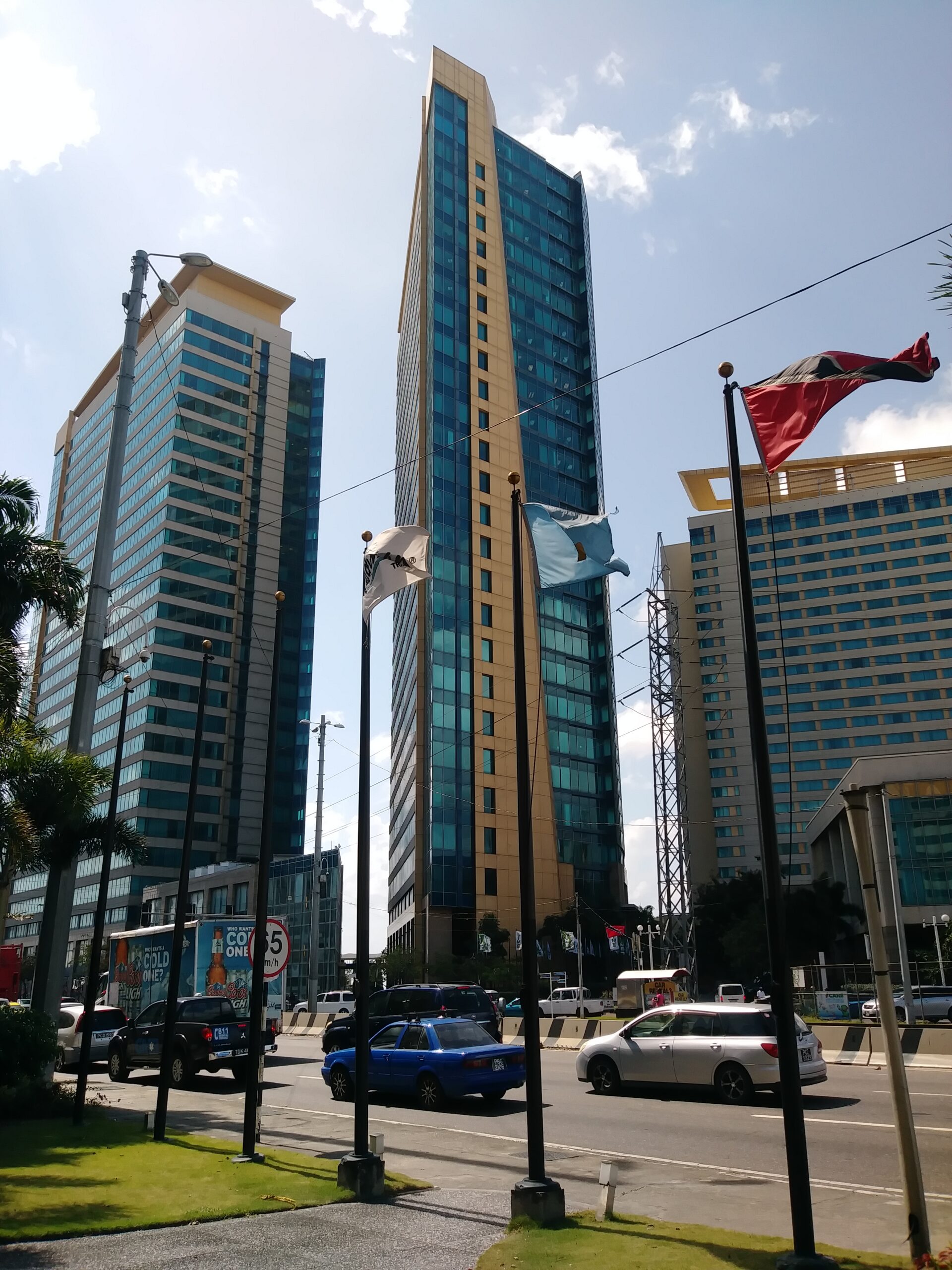
(Energy Chamber, 23.Jan.2023) — Energy Chamber of Trinidad & Tobago Chair Jerome Dookie gives his opening speech at the Trinidad & Tobago Energy Conference 2023 in Port of Spain.
Good morning everyone! It gives me great pleasure to welcome you to the Energy Conference and to deliver my first public address as Chair of the Energy Chamber of Trinidad & Tobago. I am honoured that my fellow Board members have elected me to this role in the Chamber, which represents such a critical part of our national economy. And of course, my appreciation to all members of the Chamber for your wider support.
The theme we have chosen for the conference this year is “Navigating a Complex Energy Future”. This theme reflects the challenge that is facing all of us in the sector, and as a result, the country as a whole. The energy industry is in transition and there are many complexities that we need to navigate, both in the short-term and in the longer-term.
The Energy Chamber has placed a strong focus on the challenges faced by Trinidad & Tobago with our gas supply, and how we maximize our export potential in the energy sector. This is important to all our members, whether they are small family-owned specialized contractors or major multi-nationals. We have built a strong gas-based industrial sector in Trinidad & Tobago and there is a whole eco-system of different companies who support that industry. The whole eco-system needs to be healthy if the industry is to not just survive,but thrive. While we can be proud of what we have achieved, the future of our industry is going to be different, especially as we adapt to the challenge of achieving netzero on a global scale.
There have also been some seismic shifts in both global geopolitics and the regional energy landscape. Both energy and food security have become priority issues of concern. As we navigate this complex future, the Energy Chamber remains convinced that regional integration, partnership and collaboration will play a crucial role in our success as an industry, as a country and as a region.
Just before the last edition of this conference in June 2022, we released a six-point plan on increasing gas production and maximizing our export earnings. The six points are:
1. Speeding-up approvals to bring gas to market faster;
2. Fiscal reform to encourage upstream investment;
3. Investment in decarbonization to ensure access to international markets;
4. Diverting gas from electricity generation to petrochemicals and LNG, though efficiency and renewables;
5. Focusing on small gas field developments; and
6. Securing access to imported pipeline gas, especially from Venezuela.
During the closing panel of that edition of the conference, it was clear there was close alignment on these points between the Government and the industry, towards a common objective. There was also a shared sense of urgency in taking actions to achieve tangible results.
As we consider the theme of this conference – navigating a complex energy future – that push to move much faster must be a central priority. If we can reduce the time taken to approve new projects or to go from a bid round to the first exploration well and – if things work out – on to first gas, then we will create much higher value from our resources. This will provide a direct benefit to the people of Trinidad & Tobago. As with any process improvement initiative, fixing this issue will require some detailed work and the cooperation of all parties involved.
There are some cases where the root cause of the problem is a potential misalignment between different Government agencies or Ministries. The delay in final agreement on the recently approved grid-scale solar project may well be one such instance. I am sure I speak for the entire industry when I say, we hope the lessons learnt from that process can help in the delivery of future major investments in the decarbonization process. We desperately need such projects, if we are to successfully navigate the energy transition.
Of course, we can’t speak about the energy transition without a discussion on electricity. There is a major opportunity cost in using natural gas for electricity generation that could instead be channeled to petrochemicals and LNG, to generate higher value including muchneeded foreign exchange for the country. When the gas industry was first being developed, electricity generation represented the best and most logical use for natural gas – as is the case now in Guyana at the beginning of their journey.
However, the industry in Trinidad and Tobago has matured and there are now other considerations which must be at the forefront of policymaking. To reiterate: for us as a country, there is a huge opportunity cost associated with the inefficient generation and usage of electricity. The current consultation process on electricity rates needs to be understood in that context, of course finding the right balance and ensuring that inefficiencies are not simply passed on through higher electricity charges.
But even as we highlight some frustrations and concerns, we must also celebrate the advances that have been made since the last Energy Conference.
In addition to the final agreement on the grid-scale solar project, we have also seen positive developments with the restructuring of Atlantic, signs of positive movements on gas imports from Venezuela, positive changes to the fiscal regime for oil producers – with promises of more to come – and a successful onshore bid round. We have also seen continued progress in the green hydrogen space. We have seen one of the country’s major exports, methanol, come into greater prominence as an alternative marine fuel, with our geographic location positioning Trinidad and Tobago as a potential hub for the fueling of methanol powered vessels in the Western Hemisphere.
We have seen investment decisions continuing to be made by upstream operators and some major projects, such as Manatee, Calypso and Cypre, continuing to move through the investment cycle. And we have seen operators across the value chain continue to invest in efficiency gains, methane reduction and alternative low carbon fuels.
Very importantly, we have seen a concerted and focused diplomatic drive to enable the future export of natural gas from Venezuela to Trinidad & Tobago, with some indication of positive movements in that area.
All of these developments are important for the future of our energy and petrochemical industries – and hence important to all members of the Energy Chamber throughout the supply chain for goods and services, and indeed across the entire value chain.
We have also seen positive developments in the conversations around regional integration, with a focus on both food security and energy services.
The unprecedented growth of the oil industry in our CARICOM partner country of Guyana and the potential in Suriname and beyond, also represents a huge opportunity for the region. With a significantly increased regional market for energy services, there is now a much greater chance that we can retain more value from the investments within our respective economies. With a bigger market, services that had to be previously sourced from outside the region could now be hosted within the CARICOM single market. Investments in infrastructure, equipment and people to support the energy industry within the region will be to all our collective benefit.
President Ali, we are delighted that you were able to join us here today. As you will see from the programme and from the companies taking part in our trade show, and I am sure hear from our delegates directly, there is significant capacity already here in T&T which is available to support the development of the industry in Guyana. Many of our members are looking to invest in Guyana to support the extremely exciting growth that is taking place, not just in oil and gas but in many other sectors as well. As always, partnerships and collaboration will drive value creation.
The global events of the past year have brought into strong recognition the importance of Trinidad and Tobago’s natural gas-based industry on the world stage. Our LNG, the cleanest of the three fossil fuels, will be critical to the temperate countries during these winter months. Our ammonia and other fertilizer products, such as UAN and urea, continue to play an essential role in global food security. And as previously mentioned, our methanol is now well-established as a clean burning fuel, in addition to its traditional uses.
In the past six months since our last conference, there have been some very positive developments. In the Energy Chamber we remain firmly confident in our ability to navigate the complex future we are all facing.
But – and this is a crucial but – we are not going to navigate that complex future successfully with business as usual. We must make difficult decisions and we have to make them quickly. We are on a long and complicated journey and we need all stakeholders to collaborate. Conferences like these are important to bring us together to discuss issues and ideas – but after the conference closes, we must commit to action.
Ladies and gentlemen, I thank you for your time and attention this morning.
____________________

